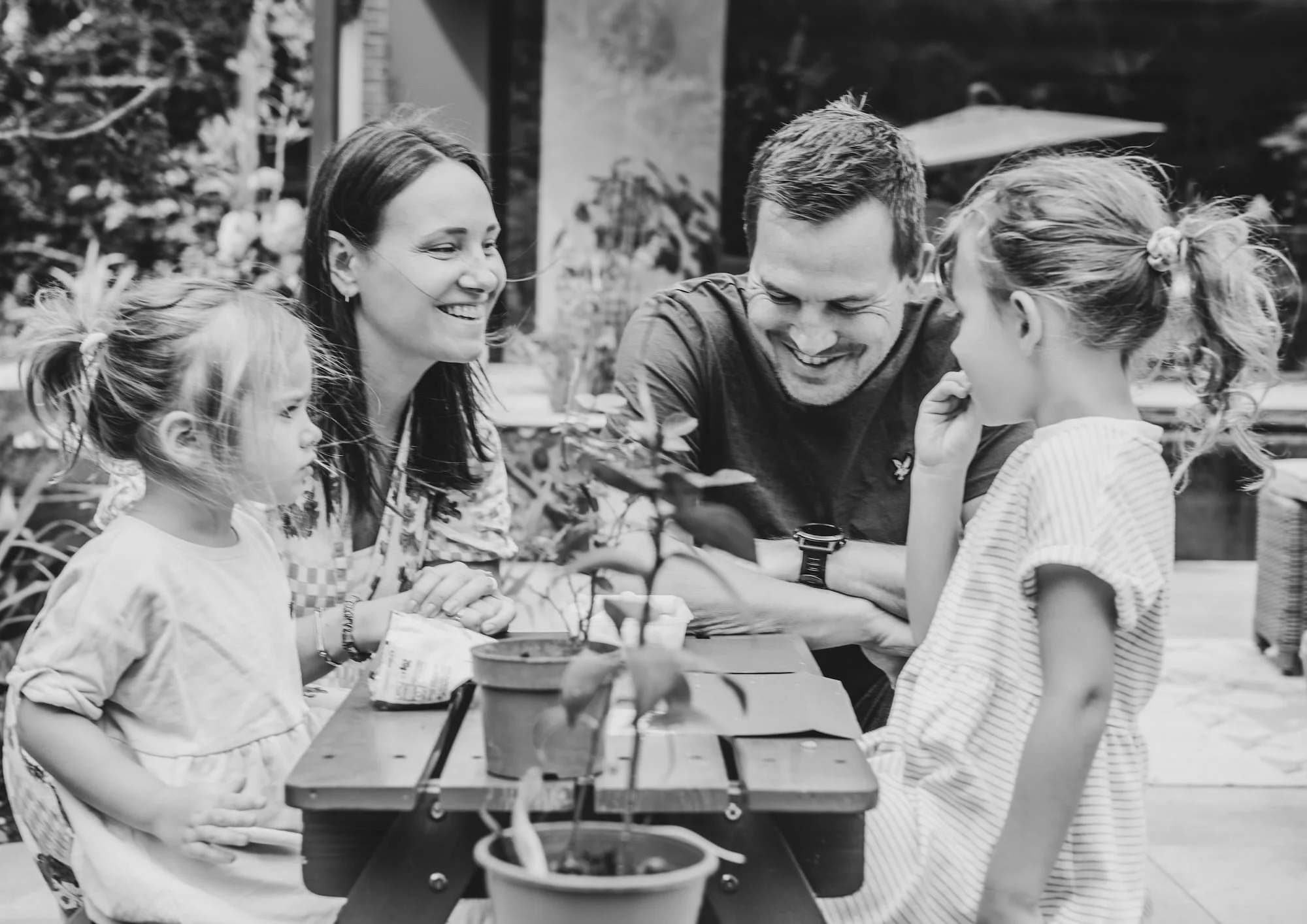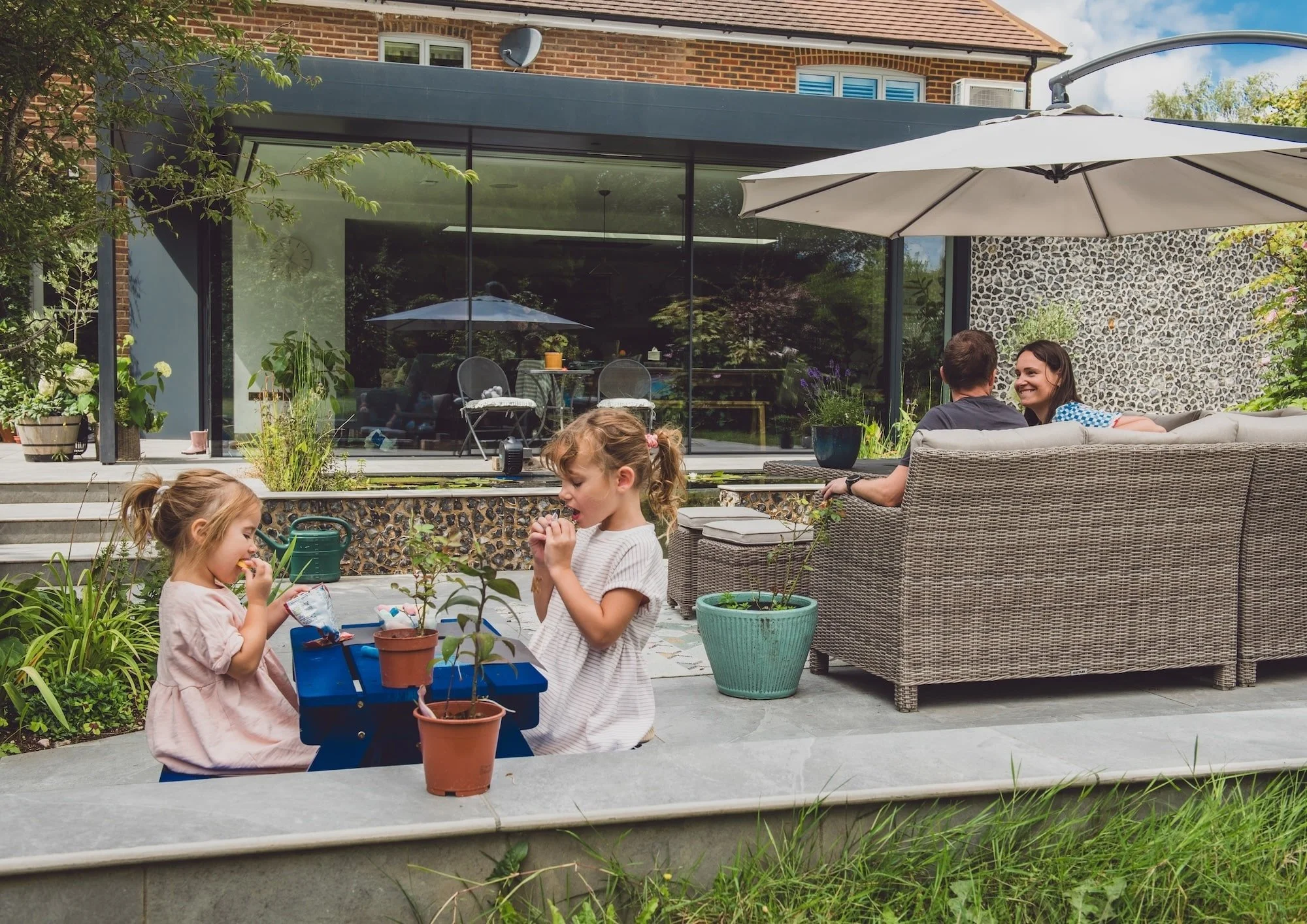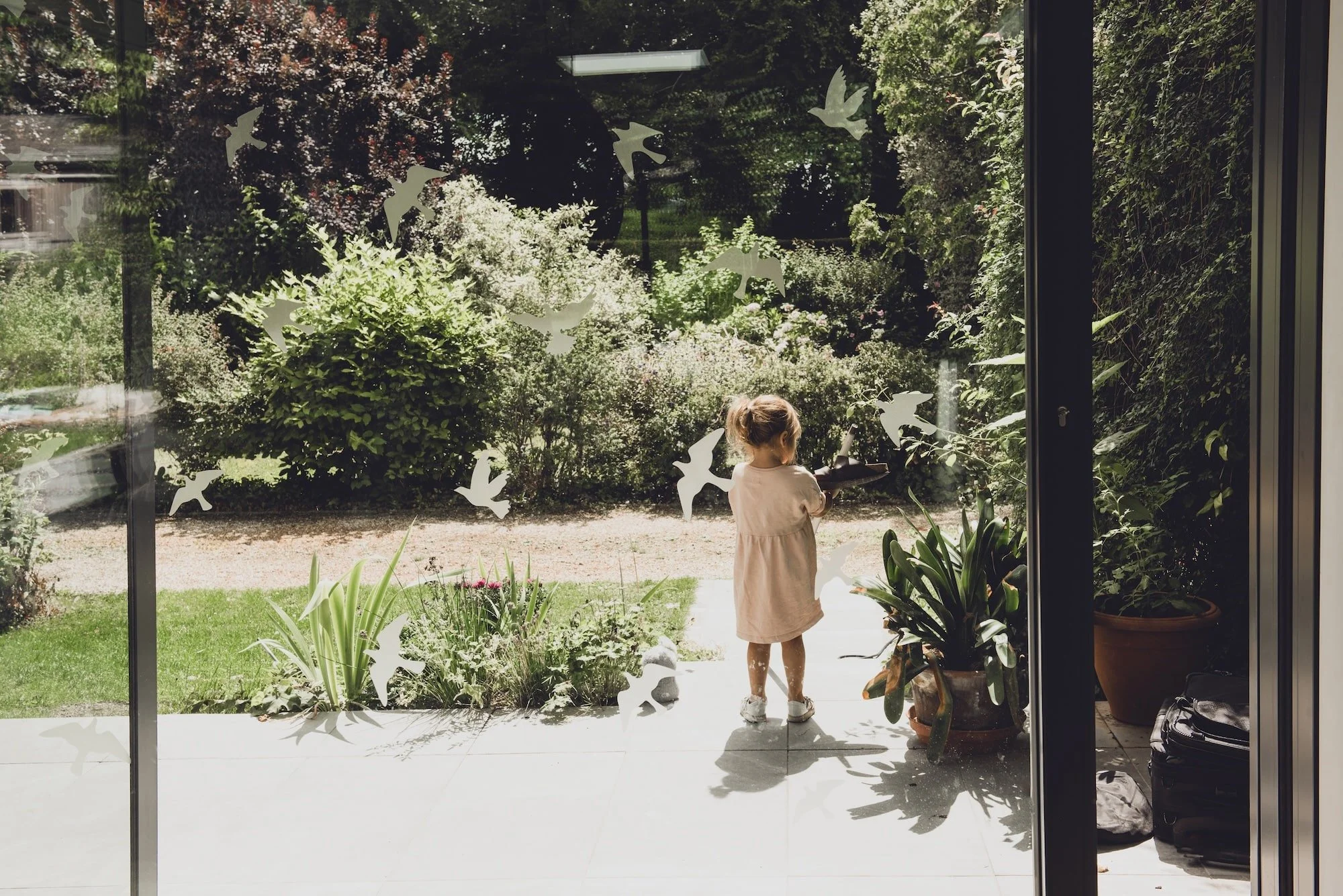“We’re emotionally attuned to each other now”
Winchester Club member, Katherine Mollart, talks about changes to her relationship with her husband after the arrival of their two daughters, and how it’s informed her work as a clinical Psychologist and couples therapist.
Photos: Lucy Morris
Interview: Alex KohanskyIt’s so lovely to know that you now have two daughters since your time with Bump & Baby Club. Perhaps we can start from the moment you brought your first baby home from the hospital - how did that feel?
I had two very different experiences of coming home with our daughters. With our first daughter, it felt weird taking her into our house, which used to be just us as a couple and now there are three of us. Maybe it was because I was in hospital for a fairly long time - I was there for three days for a failed induction followed by a c-section, and the seasons seemed to change during that time. It was the end of October and everything had suddenly become wintry and I couldn’t ground myself.
How were the early days and weeks following birth?
I really struggled emotionally. It wasn’t related to my physical recovery. I was careful to stay on top of my pain relief medication and keep the c-section wound clean, so that wasn’t the reason I was feeling down. It was the lack of sleep. I felt the tiredness as an intolerable pain. My husband was at home for the first two weeks and he could see that I was struggling but I could tell that he just didn’t get it. He has since let me know that he felt quite redundant at that time because, while he could help with the nappies, making meals and doing household chores, it was really all on me as a mum, as I was breastfeeding. And while I was struggling, he was doing things like learning how to make a sourdough bread. I remember looking over at him in the kitchen and thinking, “he’s making bread again.”
I kept saying to him, “I’m finding this really hard, I feel like I can’t cope.” He would be kind and ask me what I meant but I just couldn’t explain. I remember thinking I needed more from him emotionally but I didn’t know what. He couldn’t meet that need even though he really wanted to.
That sounds really hard. How long did that feeling go on for and did anything help?
Something changed when my daughter was around 6-8 weeks old. Before that I had been feeling really bored from the repetitiveness of the day - there’s only so much Netflix you can watch and my husband had gone back to work after two weeks and was out the house from 7am to 7pm. But around 6-8 weeks the feeding didn’t hurt as much and my baby smiled at me. It wasn’t a windy smile, it was a real smile. She was looking at me and she knew I was her mother. It felt like getting something back and something turned in me at that point. I was somehow lifting out of the negative feelings and I was like, “I love this!”
Then I started going to more baby classes and getting out of the house much more, which did wonders for my mental health. I started to feel like I could do this. But sadly my husband’s mental health took a decline due to stress at work and struggling to balance work with being present as a husband and new dad. He subsequently left his job and went on gardening leave. Then the first lockdown hit in March 2020 and we ended up having loads of lovely time together, the three of us in the sunshine.
How did your husband being at home shift things for you?
I felt like I had a very present and engaged and available partner, which I didn’t have before because of his long working hours. It really shifted something for me in our relationship. He got to know the routines and was more involved in everything. I could see their relationship blossoming which was really lovely to witness. His assessment of it is that she pulled him out of a really bad patch.
That’s so lovely. During the phase where you were suffering with your mental health, did you ever think about seeking support?
No which is really bizarre because, being a psychologist, you think I would have! It actually took me ages to work out that I didn't feel good. I think if the feeling had persisted beyond the first three months, I would’ve had to seek support. When I was pregnant the second time they asked about my mental health and I mentioned I’d had postnatal anxiety and low mood for three months. They wrote it down; they really heard, they listened, they asked me questions.
With your second daughter did you do anything to prevent yourself from going back to that place or did it happen again?
I had the opposite experience. This time around our circumstances were different as we were having house renovations done so we’d moved in with my in-laws. They are such lovely people, so supportive and engaged with the children and hands-on. I had three adults to help me!
And experience teaches you that with babies and children everything is a phase, nothing lasts forever. I had learnt that sleep deprivation is hard, but you come out of it. Nothing is hard forever. I really held onto that. So rather than resisting sleep deprivation and hating it, I went with it this time and embraced it and it didn’t hit me so hard. I think the attitude you take towards something can really impact your experience of it.
And how were things for your husband with your second?
He set up his own consultancy during covid and working part time for a former colleague on the side, so it was all very different, and when we had our second baby, he naturally took far more of a lead with our oldest.
It’s clear how important your relationship with your husband has been to you. How does that feed into the work you’re doing with new parents and their relationships?
It felt huge, having a baby together. And it made me reflect on the importance of couples ‘doing the work’ and learning to communicate effectively with each other before a baby comes on the scene, because it can place such a strain on your relationship.
It's so easy to become two people who are housemates raising a baby together, rather than a close and connected couple. There's no time or space to keep nurturing your relationship as you did before the baby came along. I think it’s important to work on the way you communicate with each other and understand each other's needs and love languages and get some practice in - so that it becomes a natural way of being with each other rather than trying to work it all out when the baby arrives.
The experience I went through having a baby sparked more of an interest in supporting couples who are new parents and doing the ‘preventative work’ to help them communicate really well before their baby comes along. So I bring this to my work as a couples therapist at Mollart CBT.
That’s amazing. Are you managing this all easily around your two girls? Is work and life balance where it should be?
Yes. I think through good communication we mostly get things right in terms of us having enough time to give to our work, the children, our relationship and other things.
I think we’re emotionally attuned to each other now and know each other far better than we did back then, and what each other needs to feel seen and to feel appreciated by the other person. Don't get me wrong, our communication will go off and we'll have an argument here and there, but we're better at repairing after the argument than we were before.
Do you think becoming a mother has changed your view of the world?
I think it makes you do a lot of self-reflection. It can bring up and trigger a lot of unresolved stuff from your own childhood and the way you were parented, which you can’t avoid it otherwise it will hit you in the face!
Through my own therapy I’ve done a fair amount of work around how to be the best mum I can when the girls are having meltdowns. I use a technique where they ‘borrow my calm’ - the idea is that if I manage my own emotions when they’re in the middle of a meltdown, they sense my steady presence and mirror my calm.
And my husband and I have worked and reflected on what values we want to instil in the girls and how we want to raise them. I think those things are really important. We’ve done this as a couple and, after everything we’ve been through, we’re a really strong team.



